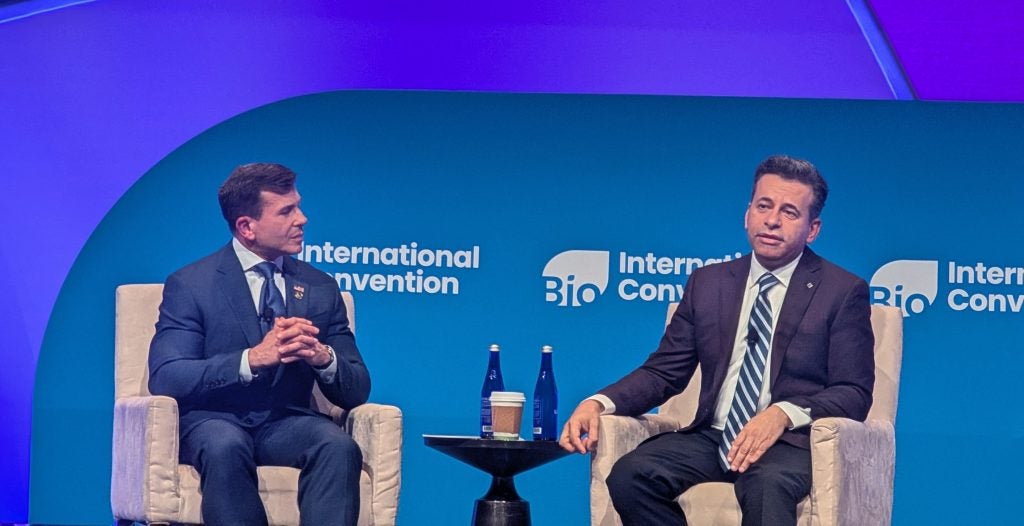US Food and Drug Administration (FDA) Commissioner Dr. Marty Makary addressed concerns about the recent cuts impacting the agency’s ability to function by emphasising that they did not affect scientific reviewers or inspectors, at an ongoing industry meeting.
“I'm proud to report that we're on track to meet all the PDUFA targets, and that morale is good and improving at the agency,” said Makary. He said the cuts concerned redundancies caused by certain departments having their own legislative, communication staff, and in other departments like HR and procurement - which constitute about 10% of the entire agency staff.
The FDA cuts, announced in March, caused significant concerns in the biotech and pharma sector on the agency’s ability to continue performing all its functions. Last week, Kalvista Pharmaceuticals said the FDA would not be able to meet its 17 June PDUFA date for its hereditary angioedema drug sebetralstat. The company was notified on 13 June that this was due to “heavy workload and limited resources” but a decision would be expected in four weeks.
Makary has been on a drive to engage with biotech leaders in the last few weeks, and came under criticism for holding meetings behind closed doors with top executives. Prior to his keynote at BIO 2025 too, he engaged with some 115 biotech executives separately, and said his office plans to hold more such meetings at major hubs.
At the public keynote, Makary continued a recent narrative on asking the big questions, particularly on approval times for a drug, and whether they can be further reduced. On the same day, the FDA announced the Commissioner’s National Priority Voucher (CNPV) programme to shorten the review time for certain drugs to 1-2 months, from 10-12 months. Makary described this as “a decoupling of the application in a new pilot program where the CMC portion and the lion's share of the application can be submitted before the final NDA or VLA submission to take advantage of the time that is spent watching a clinical trial to reach its end points”. The final clinical results can be submitted as an addendum or part 2 of the application.
Makary’s other big pitch was on artificial intelligence - and the FDA’s new tool called ELSA to help reviewers with their analysis. The tool will be used for data curation and retrieval tasks, while the process will still rely on the clinical wisdom of the reviewers. While some news reports have noted a difficult rollout, Makary said the tool was “insanely popular in the pilot group”, and a new version will be launched in a few weeks.
FDA’s strategy on trial designs, vaccines and manufacturing
Earlier this month, when the Department of Health and Human Sciences Secretary Robert Kennedy Jr. fired 17 sitting members of the Advisory Committee on Immunization Practices at the Centers for Disease Control and Prevention (CDC), concerns rose about the stance of federal agencies on vaccines.
At BIO, Makary was unequivocal on the value of vaccines saying, “I think vaccines save lives, and any case of a vaccine-preventable illness is a tragedy.” He noted that the FDA’s mandate, which is to approve safe and effective vaccines, is distinct from the CDC, which recommends the use of vaccines. Regarding Covid-19 vaccines, he viewed the US moving towards the European model, such that the agency would require updated clinical evidence to support recommending an annual booster in healthy Americans, and to continue to use a modified framework for high-risk individuals.
Another key concern as precision medicine approaches grow for smaller populations, has been the need for randomised trial evidence for approvals. “[We] 1,000% have to custom tailor the regulatory process to the intervention being proposed, into the condition being treated,” said Makary on the need for flexibility, especially with rare disease studies. He went on to mention synthetic control arms, national electronic health records data or large data sets as sources for gathering necessary data.
In line with a domestic-focused agenda of the current administration, the agency will partner with companies building manufacturing facilities to reduce guesswork on ways to meet inspection standards, he said.
One theme that has emerged since he took the role is the need for quicker, clear communications from the agency - a point directed to the audience comprising of biotech executives, consultants, researchers and patient advocates that interacts with the agency on a regular basis.









